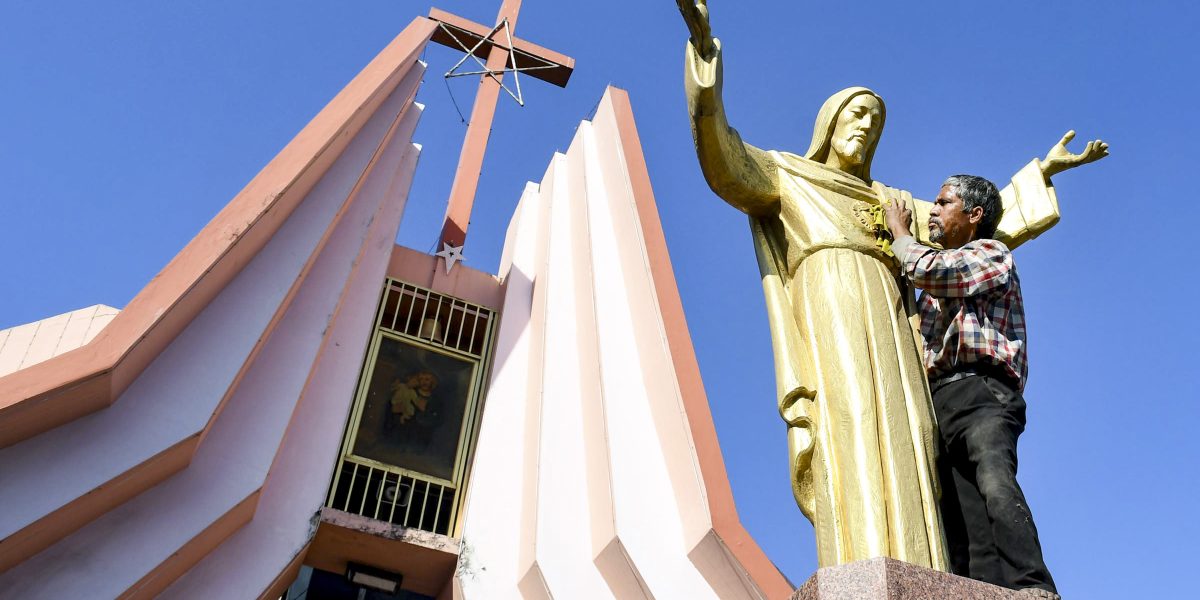
Indonesia, home to the world’s largest Muslim population, will hold the Group of 20’s first-ever Religious Forum Summit ahead of the upcoming G20 conference in Bali.
Being held on November 2 to 3, the “R20” forum has been organised by the country’s largest Muslim organisation, Nahdlatul Ulama (NU).
The R20 aims to encourage discussions among global religious leaders to find shared solutions for issues of religious extremism, by promoting the value of human equality. The event is an opportunity to assert the role of religion as a source of global solutions for global economic and political problems.
The event will bring together more than 400 participants, including 160 inter-religious figures from the world’s 20 largest economies.
Religious organisations invited to attend include the Roman Catholic Church, the Anglican Church, the World Evangelical Alliance, the World Muslim League – and, surprisingly, Rashtriya Swayamsevak Sangh, an Indian militant right-wing Hindu nationalist paramilitary volunteer organisation.
According to NU, Rashtriya has confirmed its attendance.
As an international relations scholar who focuses on Indian politics, I consider the NU’s decision to invite Rashtriya is a bold move, given Rashtriya’s notorious role in violent conflicts between Hindus and Muslims in India.
Despite Rashtriya’s controversies, I would argue that NU can still conduct a productive discussions between global religious leaders in the forum, as long as the presence of Rashtriya is also diplomatically managed.
How engaging Rashtriya can drive religious harmony
Rashtriya opposes the agenda of “appeasing minorities, particularly Muslims” in India. Together with India’s ruling Bharatiya Janata Party, it has pushed for “Akhand Bharat”, a geopolitical vision that discriminates Muslim identities and tramples the historical narratives of Indian Muslims.
Due to its background, many are sceptical about Rashtriya’s presence at the R20 event.
However, taking a more optimistic perspective, we can see that involving Rashtriya can kickstart a global movement of interfaith harmony driven by religious communities.
But, there are several steps that NU needs to do with Rashtriya to ensure the forum’s goals are met.
First, NU should be fully aware that Rashtriya is still facing a huge challenge of moderating its religious and political thoughts. It is also still trying to contain extremist elements within its organisation.
So, NU should bring up topics on religious moderation between Rashtriya and Hindu communities at large, before any further talks between Rashtriya and Muslim communities take place.
Indonesia can share its success story in maintaining its democracy and inter-religious harmony as a result of commitments by Muslim communities and organisations to practice and spread the moderate version of Islam.
This first step is expected to be not really challenging as Rashtriya is already showing signs that it is open to change and moderating its political position.
Despite its endorsement of a series of “Islamophobic” policies, Rashtriya has recently intensified its engagement with Indian Muslim communities.
Second, NU should engage with like-minded groups who are also promoting the ideas of moderate Islam, such as three Delhi-based organisations – All India Imam Organization, the Center for Peace and Spirituality, and All India Ulama & Mashaikh Board – as well as Kerala-based Markazu Saqafathi Sunniya, which is recognized by Al-Azhar University.
This story was originally published in theconversation.com . Read the full story here





